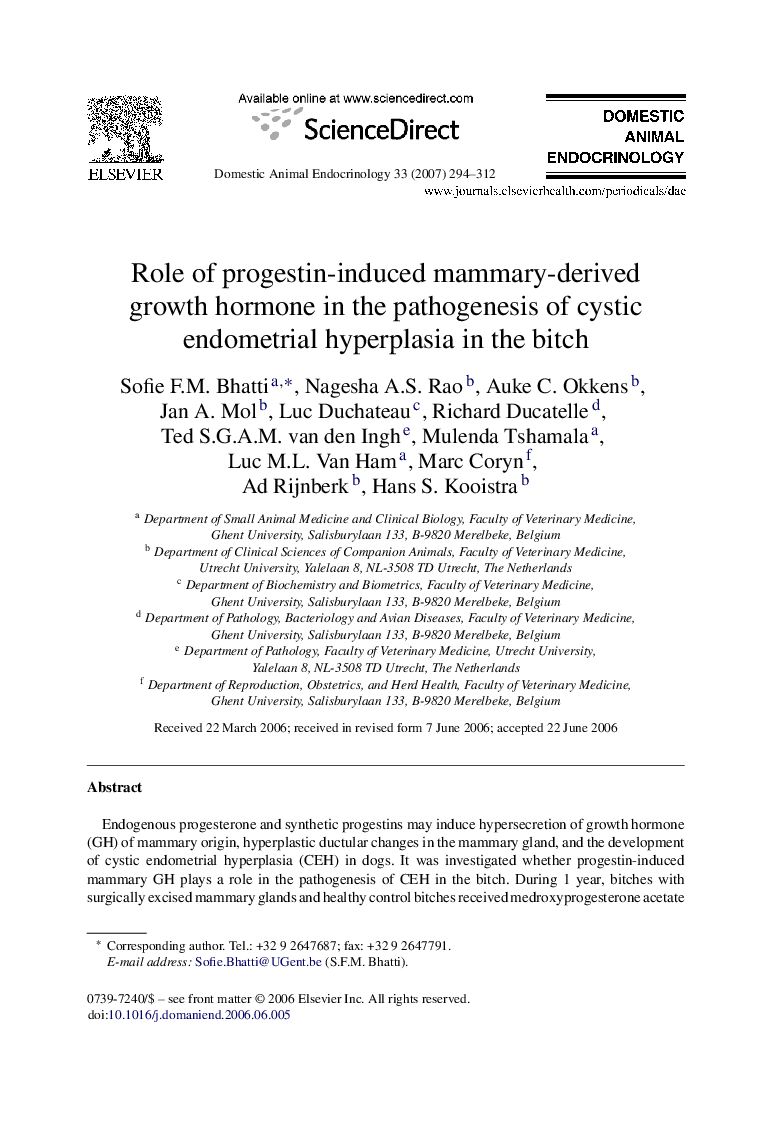| کد مقاله | کد نشریه | سال انتشار | مقاله انگلیسی | نسخه تمام متن |
|---|---|---|---|---|
| 2394071 | 1101372 | 2007 | 19 صفحه PDF | دانلود رایگان |

Endogenous progesterone and synthetic progestins may induce hypersecretion of growth hormone (GH) of mammary origin, hyperplastic ductular changes in the mammary gland, and the development of cystic endometrial hyperplasia (CEH) in dogs. It was investigated whether progestin-induced mammary GH plays a role in the pathogenesis of CEH in the bitch. During 1 year, bitches with surgically excised mammary glands and healthy control bitches received medroxyprogesterone acetate (MPA). Before and after MPA treatment, uterine and mammary tissues were collected for histological, immunohistochemical, and RT-PCR examination.After MPA administration, the mammary tissue in the control dogs had differentiated into lobulo-alveolar structures and CEH was present in all uteri of both dog groups. In the MPA-exposed mammary tissue of the control dogs, GH could only be demonstrated immunohistochemically in proliferating epithelium. After treatment with MPA the dogs of both groups had immunohistochemically demonstrable GH in the cytoplasm of hyperplastic glandular uterine epithelial cells. RT-PCR analysis of the mammary gland tissue after MPA administration demonstrated a significant higher GH gene, and lower GHR gene expression than before treatment. In the uterus, the expression of the gene encoding for GH was significantly increased in the mastectomized dogs, whereas in the control dogs the expression of the gene encoding for insulin-like growth factor-I had significantly increased with MPA administration. MPA treatment significantly down regulated PR gene expression in the uterus in both dog groups. These results indicate that progestin-induced GH of mammary origin is not an essential component in the development of CEH in the bitch.
Journal: Domestic Animal Endocrinology - Volume 33, Issue 3, October 2007, Pages 294–312